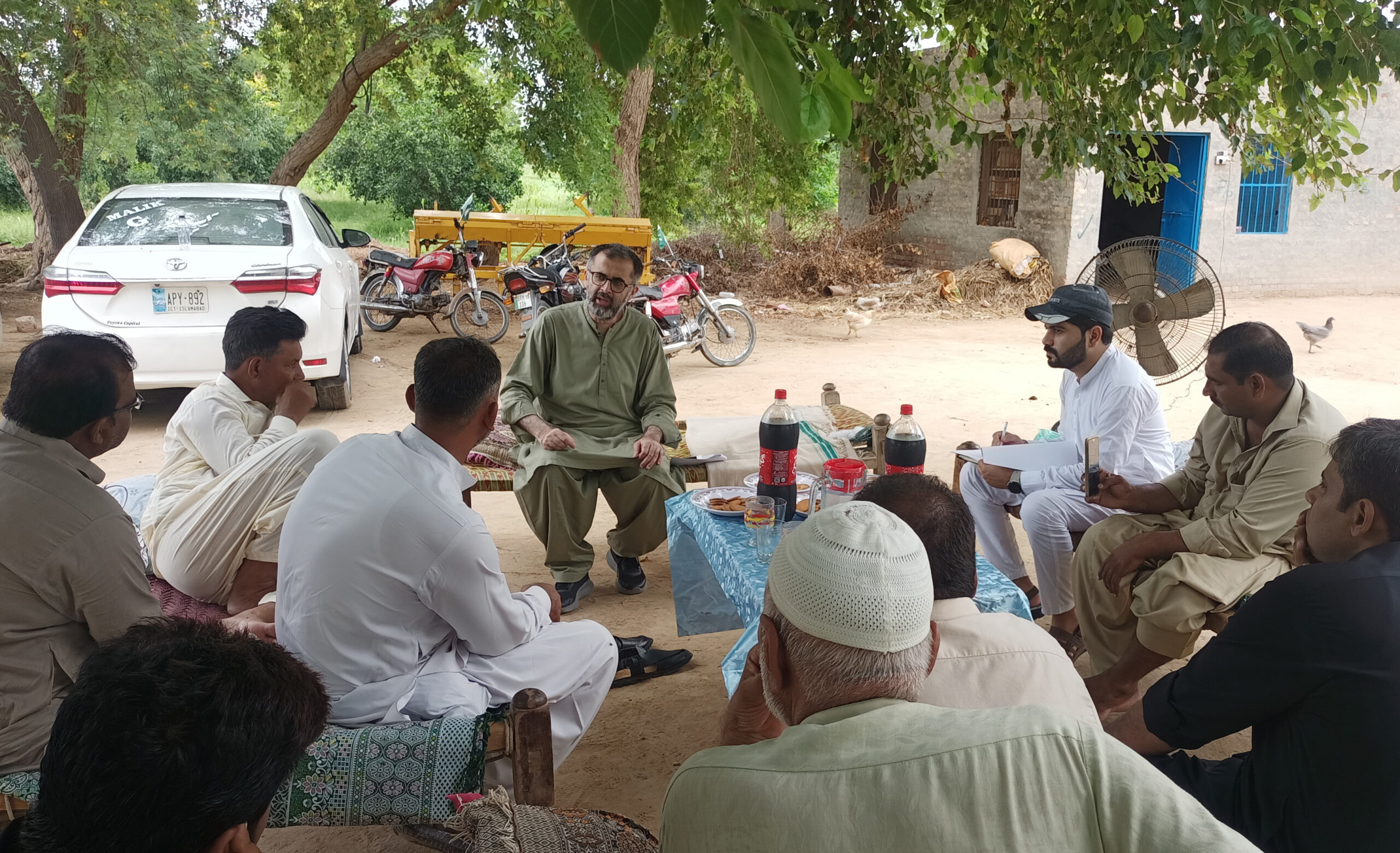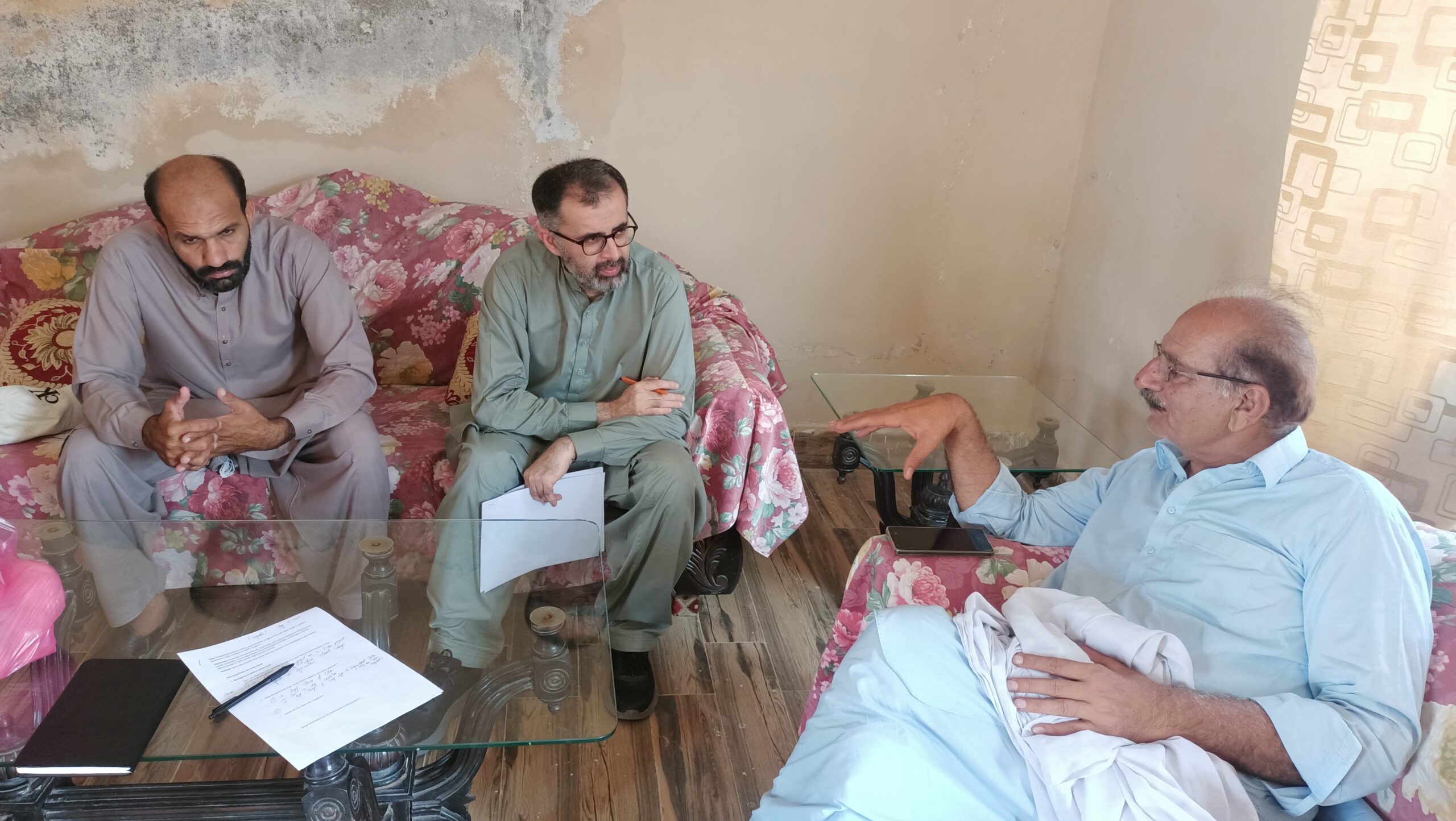

Empowering farmers through citizen science: insights from the Indus Basin, Pakistan
October 17, 2024

Our Student Awards are just one way we support and encourage the next generation of Australians into study, careers and volunteering in international agricultural research.
The awards are funded by our State and Territory Committees and made possible by organisations including ACIAR, international centres, Australian and overseas universities and NGOs who host our awardees. Please note, the 2025 Student Awards open next month!
In July, we announced our successful 2024 Student Award recipients, gearing up to travel over the next 12 months to undertake research in projects across a diverse range of topics focused in Bangladesh, Vietnam, Pakistan, Nepal, the Philippines, Samoa, Laos, Kenya, Tahiti and Nigeria.
We are delighted to present the first experience from this cohort. Faizan ul Hasan recently travelled to Pakistan to conduct research into “Integrating Science, Policy, and Practice: Insights from the Indus Basin’s Citizen Scientists”. Faizan is a PhD Student and Research Associate from the Centre for Environmental Governance at the University of Canberra and he has been awarded a John Allwright Fellowship from ACIAR.
Faizan’s Student Award experience was also supported by the Pakistan Council of Research in Water Resources and Inara Technologies.
By Faizan ul Hasan
Farmers in Pakistan are breaking new ground – literally and figuratively – through an innovative project “Upscaling of Irrigation and Climate Advisory Services” that integrates scientific data with local agricultural practices.
This project has engaged 150 farmers – 25 per cent of whom are women – across three provinces in Pakistan. Equipped with weather gadgets and supported by a mobile app, these farmers are using data to drive decisions about irrigation and crop management. Instead of relying on intuition, they now access personalised weather advisories and use advanced tools like evapotranspiration data to improve their farming practices.
The results are nothing short of remarkable. Farmers have reported better crop yields, improved water management, and reduced costs for irrigation and pesticides. By learning to monitor soil moisture and rainfall forecasts, they’re cutting down on unnecessary water usage and preventing diseases in their crops.

Perhaps most importantly, these citizen scientists are influencing more than just their fields. The data they generate is proving valuable for local and national agricultural policy, highlighting the role that grassroots participation can play in shaping sustainable agriculture.
The project is also a powerful example of gender inclusivity, with women farmers in Sindh and South Punjab emerging as leaders in this transformation. By using weather advisories and mobile apps, they’ve revolutionised traditional irrigation practices, saving water and improving crop health.
This initiative isn’t just about growing better crops – it’s about growing a stronger, more resilient farming community. These farmers are now active participants in their agricultural future, using science to navigate the challenges of climate change.
Stay tuned as we continue to share stories from the field and highlight the remarkable journey of these citizen scientists who are turning data into action!




